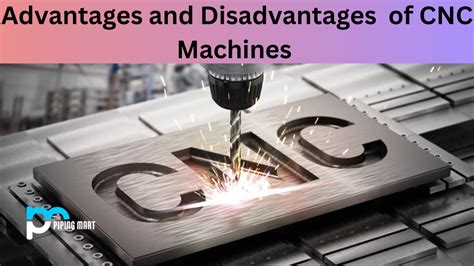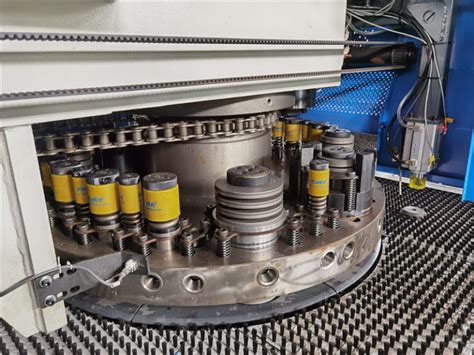advantages of cnc machines wikipedia The first CNC machines were built in the 1940s and 1950s, based on existing tools that were modified with motors that moved the tool or part to follow points fed into the system on See more
Bid Live at United Asset Sales / Sterling Machinery Auctions's AMADA SHEET METAL FABRICATION SHOP: AMADA VIPROS 358 KING & PEGA 345 TURRET PUNCHES, (2) AMADA RG-80S CNC PRESS BRAKES auction
0 · disadvantages of cnc machines
1 · disadvantages of cnc
2 · cnc punching machine disadvantages
3 · cnc milling pros and cons
4 · cnc milling advantages and disadvantages
5 · cnc machining advantages and disadvantages
6 · cnc machine pros and cons
7 · advantages of cnc milling machine
Sell your used machine to Sterling Machinery, we make the process easy. Submit photos and specs for your machine and we'll give you a quote.
disadvantages of cnc machines
kistner concrete distribution box
disadvantages of cnc
CNC offers greatly increased productivity over non-computerized machining for repetitive production, where the machine must be manually controlled (e.g. using devices such as hand wheels or levers) or mechanically controlled by pre-fabricated pattern guides (see pantograph mill). See moreIn machining, numerical control, also called computer numerical control (CNC), is the automated control of tools by means of a computer. It is used to operate tools such as drills, lathes, mills, grinders, routers and 3D printers. . See moreMotion is controlling multiple axes, normally at least two (X and Y), and a tool spindle that moves in the Z (depth). The position of the tool is driven by direct-drive stepper motors or servo motors to provide highly accurate movements, or in older designs, motors . See more
Now the CNC in the processing manufacturing field has been very extensive, not only the traditional milling and turning, other machines and equipment are also installed with the corresponding CNC, which makes the manufacturing . See moreWithin the numerical systems of CNC programming, the code generator can assume that the controlled mechanism is always perfectly . See moreThe first CNC machines were built in the 1940s and 1950s, based on existing tools that were modified with motors that moved the tool or part to follow points fed into the system on See more

Many other tools have CNC variants, including:• 3D printing• See moreIn CNC, a "crash" occurs when the machine moves in such a way that is harmful to the machine, tools, or parts being machined, . See more
kitchen cabinets in steel
What are the primary advantages of CNC machining? CNC machining provides significant advantages, including unmatched precision and consistency, increased efficiency, the ability to create complex designs, and .The precise meaning of the term machining has changed over the past one and a half centuries as technology has advanced in a number of ways. In the 18th century, the word machinist meant a person who built or repaired machines. This person's work was primarily done by hand, using processes such as the carving of wood and the writing-forging and hand-filing of metal. At the time, millwrights a. CNC machining is a manufacturing process that uses computer-controlled machines to produce precise parts and components. It involves automated tools that follow . CNC machining is a versatile and cost-effective manufacturing process. This process is compatible with a huge range of materials. As such, CNC machining helps across a diverse array of industries for a variety of .

CNC (computer numerical control) machining is a popular manufacturing process that uses computerized controls to automate parts production. Today, we’ll look at what CNC machining is, how it works, and the . Advantages of CNC Machines. THe advantages of CNC Machines include: Unmatched Accuracy and Precision: CNC machines excel in producing jobs with the highest level of accuracy and precision, surpassing any manual . CNC machines offer precision, speed, consistency, and versatility, making them ideal for producing high-quality products efficiently. Continue reading to learn more about CNC machines, their applications, and the .
CNC machining offers several significant advantages over traditional manufacturing methods. 1. High Precision and Accuracy. CNC machines utilize computer-controlled motion to ensure .
CNC offers greatly increased productivity over non-computerized machining for repetitive production, where the machine must be manually controlled (e.g. using devices such as hand wheels or levers) or mechanically controlled by pre-fabricated pattern guides (see .
What are the primary advantages of CNC machining? CNC machining provides significant advantages, including unmatched precision and consistency, increased efficiency, the ability to create complex designs, and enhanced safety in the manufacturing process.
Learn about the precision, automation, and versatility that make CNC machines essential for high-quality production. From the basics of how they operate to their advantages over traditional tools, discover why CNC technology is the .
Much modern-day machining uses computer numerical control (CNC), in which computers control the movement and operation of mills, lathes, and other cutting machines. The precise meaning of the term machining has changed over the past one and a half centuries as technology has advanced in a number of ways. CNC machining is a manufacturing process that uses computer-controlled machines to produce precise parts and components. It involves automated tools that follow programmed instructions, enabling high accuracy and efficiency in shaping materials like metal, plastic, and wood. CNC machining is a versatile and cost-effective manufacturing process. This process is compatible with a huge range of materials. As such, CNC machining helps across a diverse array of industries for a variety of applications. Manufacturers and machinists use this process in various ways. CNC (computer numerical control) machining is a popular manufacturing process that uses computerized controls to automate parts production. Today, we’ll look at what CNC machining is, how it works, and the advantages and challenges of this process. We’ll also explore the various applications of CNC machining and the future of this field. 1.
Advantages of CNC Machines. THe advantages of CNC Machines include: Unmatched Accuracy and Precision: CNC machines excel in producing jobs with the highest level of accuracy and precision, surpassing any manual machine's capabilities.
CNC machines offer precision, speed, consistency, and versatility, making them ideal for producing high-quality products efficiently. Continue reading to learn more about CNC machines, their applications, and the advantages they .CNC machining offers several significant advantages over traditional manufacturing methods. 1. High Precision and Accuracy. CNC machines utilize computer-controlled motion to ensure incredibly tight tolerances. This level of precision is repeatable, making CNC machining ideal for high-volume production.CNC offers greatly increased productivity over non-computerized machining for repetitive production, where the machine must be manually controlled (e.g. using devices such as hand wheels or levers) or mechanically controlled by pre-fabricated pattern guides (see .
What are the primary advantages of CNC machining? CNC machining provides significant advantages, including unmatched precision and consistency, increased efficiency, the ability to create complex designs, and enhanced safety in the manufacturing process. Learn about the precision, automation, and versatility that make CNC machines essential for high-quality production. From the basics of how they operate to their advantages over traditional tools, discover why CNC technology is the .
Much modern-day machining uses computer numerical control (CNC), in which computers control the movement and operation of mills, lathes, and other cutting machines. The precise meaning of the term machining has changed over the past one and a half centuries as technology has advanced in a number of ways.
CNC machining is a manufacturing process that uses computer-controlled machines to produce precise parts and components. It involves automated tools that follow programmed instructions, enabling high accuracy and efficiency in shaping materials like metal, plastic, and wood.
CNC machining is a versatile and cost-effective manufacturing process. This process is compatible with a huge range of materials. As such, CNC machining helps across a diverse array of industries for a variety of applications. Manufacturers and machinists use this process in various ways.
CNC (computer numerical control) machining is a popular manufacturing process that uses computerized controls to automate parts production. Today, we’ll look at what CNC machining is, how it works, and the advantages and challenges of this process. We’ll also explore the various applications of CNC machining and the future of this field. 1. Advantages of CNC Machines. THe advantages of CNC Machines include: Unmatched Accuracy and Precision: CNC machines excel in producing jobs with the highest level of accuracy and precision, surpassing any manual machine's capabilities. CNC machines offer precision, speed, consistency, and versatility, making them ideal for producing high-quality products efficiently. Continue reading to learn more about CNC machines, their applications, and the advantages they .

$14K+
advantages of cnc machines wikipedia|cnc machine pros and cons